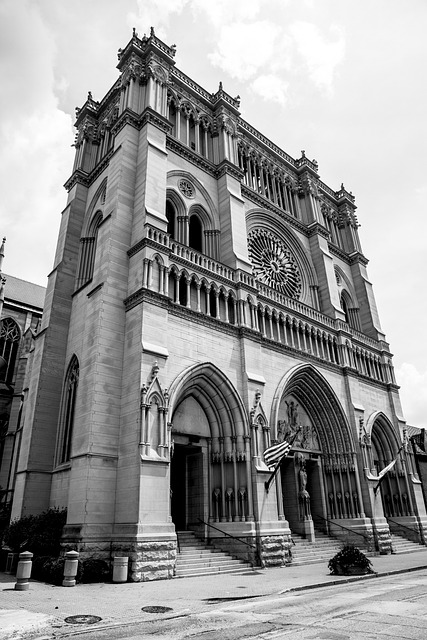Restorative justice in campus sexual assault cases, facilitated by sexual assault attorneys Louisville KY, shifts from punishment to healing. This approach promotes dialogue, empathy, and accountability, transforming legal systems and cultural norms. Louisville's legal landscape embraces these practices, emphasizing victim support and community understanding. Attorneys play a crucial role, advocating for rights while guiding survivors through complex processes, leading to holistic resolutions that enhance campus safety.
“Restorative Practices in Louisville Campus Sexual Assault Cases” explores innovative approaches to healing and justice. Understanding restorative practices offers a promising path beyond traditional punishment, focusing on accountability, empathy, and survivor-centered care. This article delves into the legal framework facilitating restorative justice in Kentucky, highlighting the pivotal role of sexual assault attorneys in these processes. We examine implementation strategies on Louisville’s campus and explore support systems that foster healing communities, emphasizing the well-being of survivors and the power of collective recovery.”
Keywords: sexual assault attorneys Louisville KY, restorative practices, campus sexual assault, Kentucky legal framework, survivor-centered care.
Understanding Restorative Practices in Campus Sexual Assault

Restorative practices in campus sexual assault cases aim to heal and reconcile, focusing on the needs of all involved rather than solely punishing the perpetrator. Unlike traditional punitive measures, restorative justice encourages open dialogue between the survivor, accused, and community, fostering an environment where understanding, empathy, and accountability flourish. This approach seeks to address the harm caused by sexual assault not just through legal consequences but also by promoting personal growth and community support for all parties.
In Louisville, Kentucky, where sexual assault attorneys play a crucial role in navigating complex legal systems, restorative practices offer an alternative pathway towards justice and healing. Local campuses adopting these models are creating safer, more supportive environments for survivors while challenging cultural norms that have long surrounded campus sexual assault. This shift in approach requires collaboration between legal professionals, educators, and community members committed to transforming the way society responds to such incidents.
Legal Framework for Restorative Justice in Kentucky

In Kentucky, including the Louisville campus, the legal framework for restorative justice in sexual assault cases is evolving. The state has recognized the potential benefits of restorative practices, which aim to heal victims and foster understanding between parties involved. This approach encourages open communication, empathy, and accountability, often resulting in more satisfactory outcomes for all concerned.
Restorative justice models vary, but they generally involve a process where victims, perpetrators, and community members come together to discuss the impact of the crime and determine a course of action. Sexual assault attorneys in Louisville KY play a crucial role in facilitating these processes while ensuring that the legal rights of their clients are protected. They guide both victims and accused through the complexities of restorative justice practices, offering support and advocacy throughout.
The Role of Sexual Assault Attorneys in Restorative Processes

In restorative processes for campus sexual assault cases, sexual assault attorneys in Louisville, KY play a pivotal role. These legal professionals are not just advocates but also facilitators who help create an environment conducive to healing and reconciliation. They guide survivors through the complex legal system while ensuring their rights are protected, and they work collaboratively with various stakeholders—including students, campus administrators, and community members—to restore justice and safety on campus.
The expertise of sexual assault attorneys is essential in navigating the challenges that arise in these cases. They employ strategic approaches to gather evidence, interview witnesses, and build strong legal arguments. By combining their legal acumen with empathy for survivors’ experiences, they contribute significantly to restorative outcomes. This holistic approach not only seeks justice but also supports the emotional well-being of those affected by sexual assault on college campuses.
Implementing Restorative Measures on the Louisville Campus

Implementing Restorative Measures on the Louisville Campus
In response to rising concerns about campus sexual assault, many educational institutions in Louisville, Kentucky, are adopting restorative practices as a holistic approach to addressing these issues. Restorative measures go beyond traditional punitive methods and focus on healing for all parties involved—survivors, accused, and the community at large. By involving stakeholders in open dialogue, these practices aim to rebuild trust and foster a safer learning environment.
Sexual assault attorneys Louisville KY play a crucial role in facilitating this transition by providing legal guidance that aligns with restorative principles. They help ensure that everyone’s rights are respected while encouraging communication and accountability. This collaborative process facilitates a more just and effective resolution, catering to the emotional and psychological needs of survivors and aiming to prevent future incidents through education and understanding.
Supporting Survivors and Fostering Healing Communities

Survivors of campus sexual assault face a unique set of challenges as they navigate their journey towards healing. Restorative practices, championed by sexual assault attorneys in Louisville, KY, offer a holistic approach to support and empower these individuals. By focusing on restoration rather than punishment, these practices foster a sense of safety and community.
Community members, including peers, faculty, and staff, play a pivotal role in the healing process. Sensitized and trained, they can provide immediate assistance, emotional support, and a safe space for survivors to share their experiences. This collaborative effort creates a nurturing environment, encouraging open communication and fostering a culture where everyone feels responsible for addressing sexual assault proactively and compassionately.






